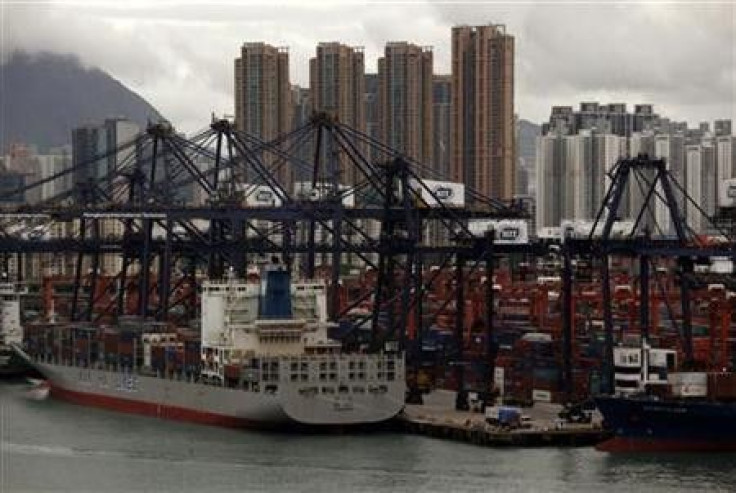China's August Factory Output Growth Is Weakest In 3 Years

China's factories ran at their slowest rate for 39 months in August, the government reported Sunday, while a double-digit rise in fixed asset investment showed that infrastructure spending remained key to economic growth.
Industrial output growth slowed to 8.9 percent year on year, down from July's 9.2 percent, the weakest since May 2009 and below market forecasts of a 9.1 percent rise, data from China's National Bureau of Statistics showed, Reuters reported.
Fixed asset investment, which accounted for half of China's net economic growth in the first-half of 2012, grew 20.2 percent between January and August compared to the year-earlier period, just below expectations for a 20.4 percent expansion.
Retail sales rose 13.2 percent last month from a year ago, though the trend of spending so far in 2012 has been tracking slightly lower.
The data is likely to reinforce market expectations that China will further adjust policies soon to lift an economy mired in its softest period of growth in three years.
It's clear that the stimulus measures that have been put in place thus far have not yet had an impact on growth, IHS Global Insight analyst Alistair Thornton told the Associated Press. So growth continues to slow, investment continues to weaken, the economy continues to go from worse to worse.
The government has cut interest rates twice since the start of June, but authorities are moving cautiously after Beijing's huge stimulus during the 2008 global crisis ignited inflation and a wasteful building boom. Growth slowed to a three-year low of 7.6 percent in the second quarter.
The government doesn't want to repeat the mistakes of four years ago, but, given the pace of the slowdown, they have to fall back on their tried and tested investment in infrastructure, said Thornton.
The headline numbers do not look very good and they suggest a pretty challenging outlook for policymakers, Zhang Zhiwei, chief China economist at Nomura in Hong Kong, told Reuters.
Qiu Xiaohua, former head of the National Bureau of Statistics and now a senior researcher with the China National Offshore Oil Corp., told a forum in the city of Xiamen on Sunday that the government still had room to act to bolster growth - and urged it to do so.
I think the government should accelerate the pace and further increase the strength of policy fine-tuning to give a lift to the economy, Qiu said, adding that he expected Q3 GDP growth to slow to 7.4 percent or less.
China's vast factory sector has been badly hit by slowing new orders. Surveys of purchasing managers earlier this month showed concerns growing about new business, suggesting that manufacturers will run inventories down further before they can begin to turn production up again.
Highlighting the government's piecemal approach to stimulating the economy, it announced Thursday it had approved 25 subway building projects worth tens of billions of dollars.
Other data Sunday showed that a jump in food prices pushed inflation to 2 percent in August from 1.8 percent in July. Food prices rose 3.4 percent from a year earlier in August after a 2.4 percent increase in July.
Retail sales growth for August inched up to 13.2 percent.
© Copyright IBTimes 2024. All rights reserved.











